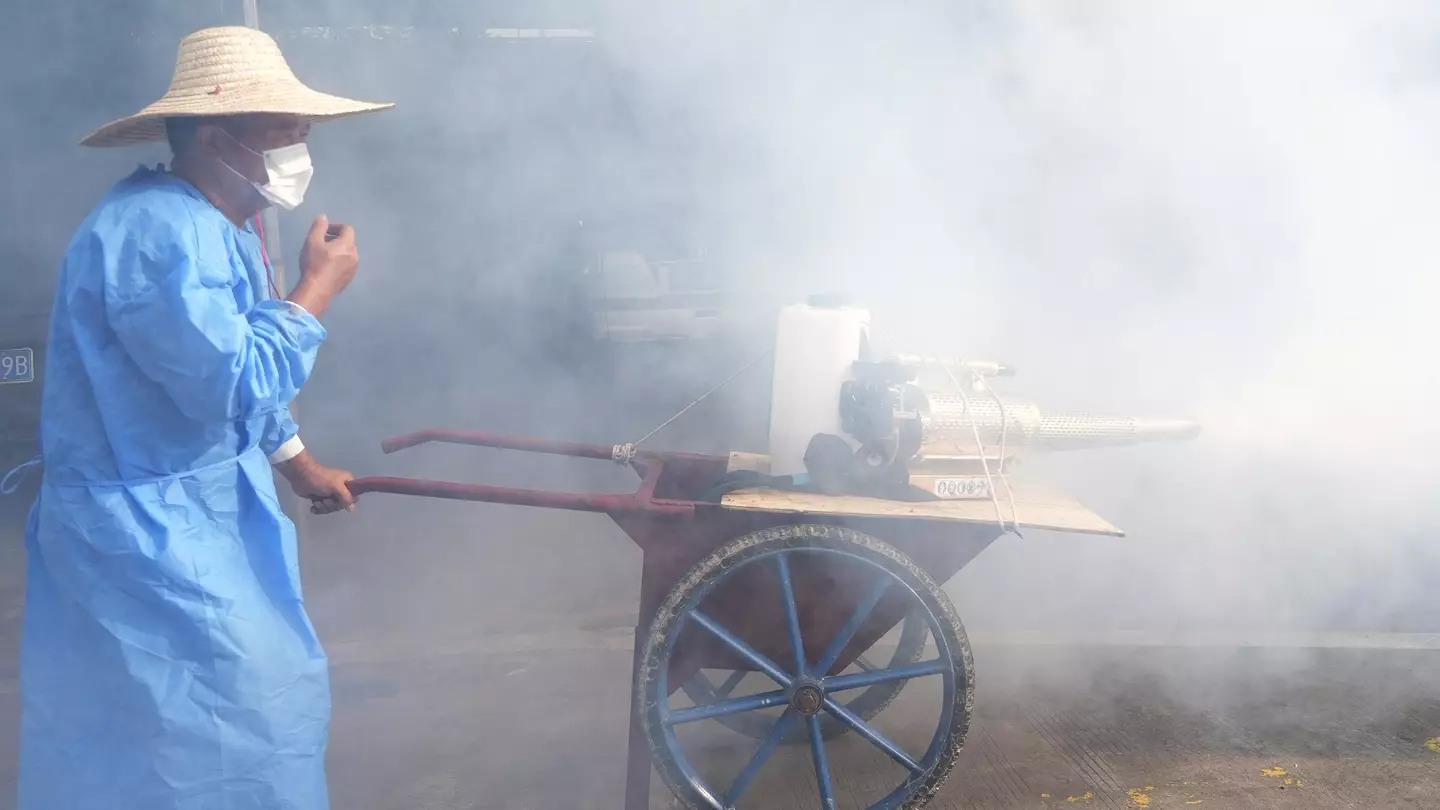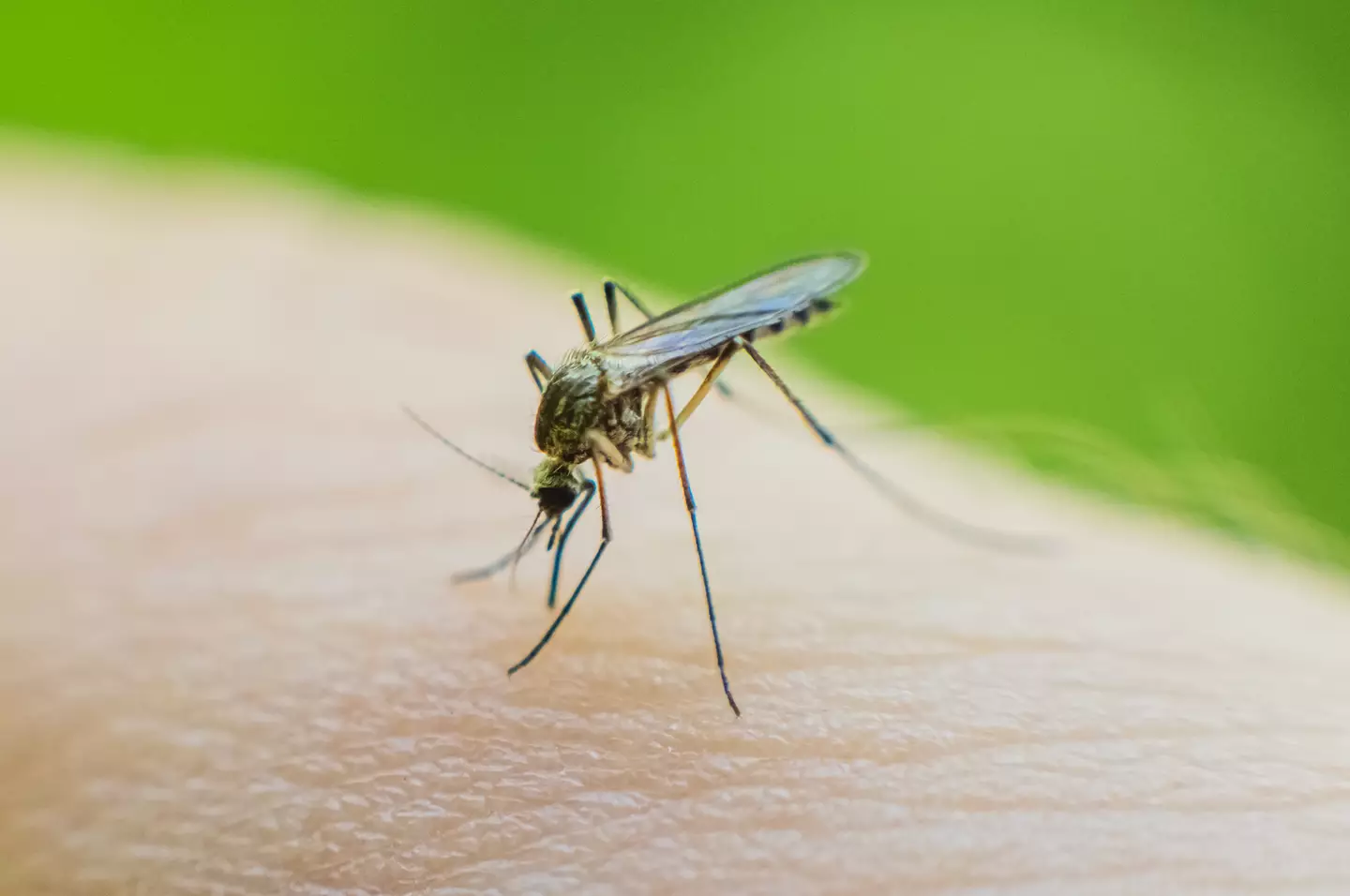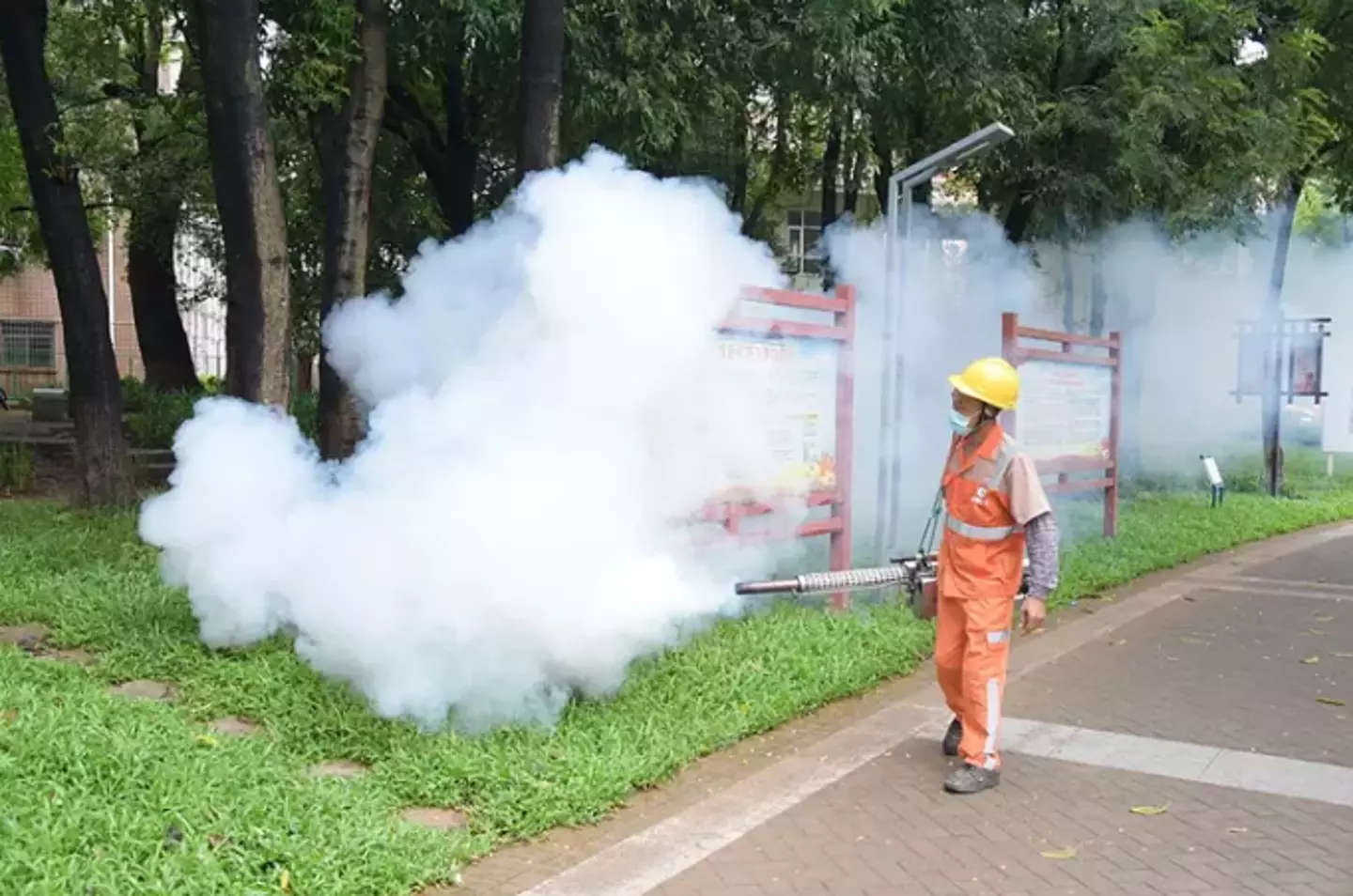
China has taken steps to contain the Chikungunya virus, as thousands of people across more than 10 cities have come down with the virus.
If the Coronavirus pandemic and subsequent lockdowns taught us anything, it was to be vigilant against health situations getting quickly out of hand.
China, one of the nations most impacted by COVID-19, has taken multiple steps in order to stop the spread of a new virus.
Thankfully, unlike COVID-19, Chikungunya virus cannot be typically passed from person to person as it is a mosquito-borne virus.
Advert
Chikungunya virus is spread via the bite of an infected mosquito, and infections have previously been recorded across Africa, the Americas, Asia, Europe and islands in the Indian and Pacific Oceans.
In China, people who have come down ill with the virus have been from one of the 13 cities in the Guangdong area and so far, there have been an estimated 7,000 cases.

What are the symptoms of Chikungunya virus?
When it comes to the symptoms, the severity can vary but they can be debilitating.
According to the CDC, most people with the virus will develop some symptoms three to seven days after an infected mosquito bites them.
The most common symptoms are fever and joint pain, as well as a headache, muscle pain, joint swelling or rashes.
Some groups are more at risk than others, as the CDC noted that newborn babies and adults over the age of 65 are more at risk, as are those with health conditions, including high blood pressure, diabetes or heart disease.
Death from chikungunya is also rare, and patients tend to feel better within a week - however, joint pain can be severe and persist for months.

China's response to the virus outbreak
When it comes to stopping this virus from spreading, China has taken the advice of the World Health Organization.
The WHO advises that the best way to prevent the spread is to eliminate breeding grounds for mosquitoes - specifically pools of stagnant water. So, residents have been told to get rid of sources in their homes, including flowerpots, bottles and coffee machines.
If they fail to do so, they'll be fined up to 10,000 yuan, or $1,400.
Large, genetically altered mosquitoes known as 'elephant mosquitoes' have also been released in hopes that these larger mosquitoes will eat the virus-carrying ones.
If this fails, then hopefully some of the 5,000 mosquito-eating fish introduced into lakes in Foshan will.
Sanitation workers have also been spotted spraying insecticide in an attempt to curb infection rates.
Topics: China, Coronavirus, Health, News, World News, Chikungunya virus